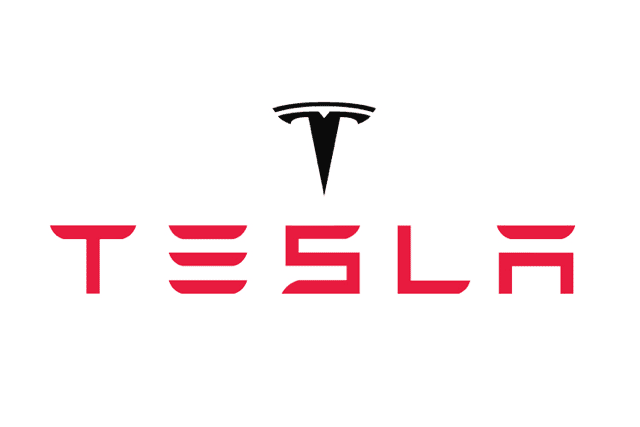Electric vehicle (EV) pioneer Tesla, Inc. (TSLA - Get Rating) shares have declined 29% in the first quarter, marking the worst period for the stock since the end of 2022. Its first-quarter stock price decline was its third-steepest quarterly fall on record. Investor sentiments have taken a hit due to expectations of lower-than-expected vehicle volume growth this year, lower margins, heightened competition, and falling demand for EVs.
In this piece, I have discussed why it could be wise to avoid the stock now.
TSLA had a difficult start to 2024, with the stock becoming the worst performer in the S&P 500 at the end of the first quarter. Meanwhile, the S&P 500 marked its best first quarter since 2019, returning 10.2%. TSLA’s stock’s poor run has been backed by expectations that the EV manufacturer will miss Wall Street’s expectations for deliveries and revenue in the first quarter.
Analysts expect deliveries of 457,000 units in the first quarter. In its Q4 earnings report, TSLA said its vehicle volume growth rate may be notably lower than the growth rate achieved in 2023, indicating that the carmaker may not reach the Street estimates of 2.19 million for 2024. TSLA has also struggled due to heightened competition from manufacturers such as BYD in China.
New players like Xiaomi are also entering the lucrative EV market with cheaper offerings. Despite TSLA’s price cuts, its sales have remained sluggish in China. Moreover, slowing demand for EVs has led the company to reduce production at its Shanghai factory. Wells Fargo has downgraded TSLA to “underweight” and lowered its price target from $200 to $125. Bernstein reduced its price target on the stock from $150 to $120.
Here’s what could influence TSLA’s performance in the upcoming months:
Mixed Financials
TSLA’s total revenues for the fiscal fourth quarter ended December 31, 2023, increased 3.5% year-over-year to $25.17 billion. Its total automotive revenues rose 1.2% over the prior-year quarter to $21.56 billion. The company’s net cash provided by operating activities increased 33.3% year-over-year to $4.37 billion.
On the other hand, its adjusted EBITDA declined 26.9% year-over-year to $3.95 billion. Its non-GAAP net income attributable to common stockholders decreased 39.5% over the prior-year quarter to $2.49 billion. Also, its EPS attributable to common stockholders came in at $0.71, representing a decline of 40.3% year-over-year.
Mixed Analyst Estimates
Analysts expect TSLA’s EPS for fiscal 2024 to decline 4.1% year-over-year to $2.99. Its revenue for fiscal 2024 is expected to increase 11.7% year-over-year to $108.10 billion. Its EPS and revenue for fiscal 2025 are expected to increase 39.2% and 20.3% year-over-year to $4.16 and $130 billion, respectively.
High Profitability
In terms of the trailing-12-month EBIT margin, TSLA’s 9.19% is 19.5% higher than the 7.69% industry average. Likewise, its 15.50% trailing-12-month net income margin is 232.2% higher than the industry average of 4.67%. Additionally, its 27.95% trailing-12-month Return on Common Equity is 147.9% higher than the industry average of 11.28%.
Stretched Valuation
In terms of forward non-GAAP P/E, TSLA’s 58.78x is 266.5% higher than the 16.04x industry average. Its 3.84x forward non-GAAP PEG is 141.5% higher than the 1.59x industry average. Likewise, its 32.39x forward EV/EBITDA is 231.8% higher than the 9.76x industry average.
POWR Ratings Reflect Bleak Prospects
TSLA has an overall D rating, equating to a Sell in our POWR Ratings system. The POWR Ratings are calculated by considering 118 distinct factors, with each factor weighted to an optimal degree.
Our proprietary rating system also evaluates each stock based on eight distinct categories. TSLA has an F grade for Value, in sync with its stretched valuation. Its 2.41 beta is consistent with its D grade for Stability.
TSLA’s stock is trading below its 50-day and 200-day moving averages, justifying its D grade for Momentum.
TSLA is ranked #41 out of 53 stocks in the Auto & Vehicle Manufacturers industry. Click here to access TSLA’s Growth, Sentiment, and Quality ratings.
Bottom Line
TSLA’s stock is trading below its 50-day and 200-day moving averages of $187.29 and $232.14, respectively, indicating a downtrend. Despite price cuts and incentives, EV demand is expected to continue decelerating. In addition to slowing demand, TSLA is facing heightened competition from other manufacturers who have developed cutting-edge and cheaper offerings.
Given its stretched valuation and high beta, it could be wise to avoid the stock now.
Stocks to Consider Instead of Tesla, Inc. (TSLA)
The odds of TSLA outperforming in the weeks and months ahead are significantly compromised. However, there are many industry peers with impressive POWR Ratings. So, consider these three A (Strong Buy) and B-rated (Buy) stocks from the Auto & Vehicle Manufacturers industry instead:
Mercedes-Benz Group AG (MBGAF - Get Rating)
Honda Motor Co., Ltd. (HMC - Get Rating)
Bayerische Motoren Werke Aktiengesellschaft (BMWYY - Get Rating)
What To Do Next?
Discover 10 widely held stocks that our proprietary model shows have tremendous downside potential. Please make sure none of these “death trap” stocks are lurking in your portfolio:
Want More Great Investing Ideas?
TSLA shares rose $2.41 (+1.37%) in premarket trading Monday. Year-to-date, TSLA has declined -29.25%, versus a 10.39% rise in the benchmark S&P 500 index during the same period.
About the Author: Dipanjan Banchur

Since he was in grade school, Dipanjan was interested in the stock market. This led to him obtaining a master’s degree in Finance and Accounting. Currently, as an investment analyst and financial journalist, Dipanjan has a strong interest in reading and analyzing emerging trends in financial markets. More...
More Resources for the Stocks in this Article
| Ticker | POWR Rating | Industry Rank | Rank in Industry |
| TSLA | Get Rating | Get Rating | Get Rating |
| MBGAF | Get Rating | Get Rating | Get Rating |
| HMC | Get Rating | Get Rating | Get Rating |
| BMWYY | Get Rating | Get Rating | Get Rating |






